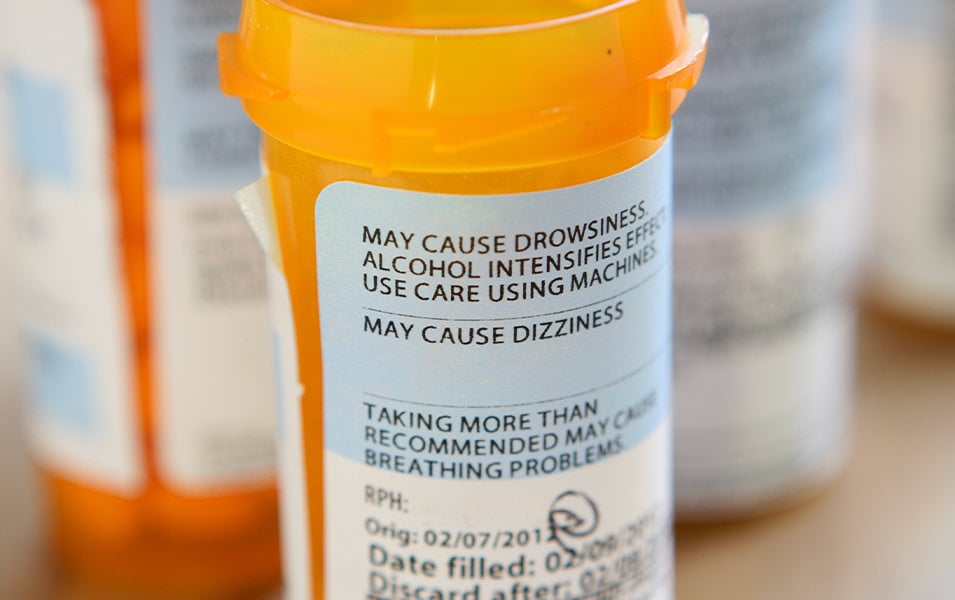
Product Liability Lawyers For Companies in West Virginia
Product manufacturers rely on consumers to buy their goods. However, when a consumer sustains serious injuries from a product that they thought was safe, liability might fall on your company. Product liability cases can occur quickly and gain unwanted media attention. Is your company prepared for the possible negative attention and the following lawsuits? Stay vigilant with our legal counsel. The attorneys at Orndorff Mowen PLLC are ready to assist West Virginia businesses in defending against liability cases, assessing and managing risk, and helping find solutions to prevent future loss. We are with you to litigate in the courtroom or negotiate a settlement quietly.
Is Your Business Aware of the Common Types of Product Liability Lawsuits?

While no two consumer products are exactly the same, there are specific types of liability lawsuits that can apply to any and all, depending on the circumstances. Orndorff Mowen PLLC has experience defending companies for any claim that may arise, including negligence, breach of warranty, and strict liability.
Negligence
Negligence in product liability cases involves a failure to act in a way that is expected of a reasonable manufacturer. When an injured party claims that the design or manufacture of a certain product caused injury, negligence is at the heart of the case. As such, it is the claimant who must show that you were careless and failed in the duty to provide a safe product. Such negligence may occur in the product planning stages, the actual manufacturing process, testing and inspection, or early release of the product before all facets of its use and safety are known.
Product liability lawsuits citing negligence, whether found to be true or not, are often detrimental to your business. Your brand’s reputation is at stake, and if consumers question whether they can trust your products and you, it can affect your sales and the longevity of your business. Such lawsuits involving manufacturing or design defects can also come with high costs.
Breach of Warranty
A breach of warranty lawsuit relates to a contract between the buyer and the seller. At the sale of a product, two warranties exist for the buyer — an express warranty and an implied warranty. An express warranty is any direct communication (written or oral) wherein the manufacturer or retailer provides information concerning the product and its safe use. Implied warranty is one in which the manufacturer makes an implied promise that the product is of a certain high quality and will not cause harm when used as intended. These types of lawsuits involve complex legal issues, and you will benefit from the legal advice and diligent assistance of experienced product liability lawyers.
Strict Liability
Strict liability falls under tort law and focuses on defective or dangerous products which lead to injury. However, to recover damages, claimants must first prove that your product is defective in some way. Next, they must show that they sustained an injury as a direct result of those design or manufacturing defects.
If a defect is determined to exist, the manufacturer can be found strictly liable even if it practiced extreme care and caution during the manufacturing process.
Whether you are the manufacturer, retailer, or wholesaler, you are at risk for product liability lawsuits. The more you know now, the better prepared you can be for the future of your company.
How Do I Protect My Business from Product Liability Claims?
The existence of product liability laws is a protection measure for consumers, yet is a potential risk for your West Virginia business. According to these laws, it is the manufacturer’s responsibility to make their components and overall products safe for consumers. You may believe you have done everything right, but it still might not be enough. You cannot strictly rely on a disclaimer or warning labels.
There are several methods that you should combine to protect your company’s well-being, such as continuous product testing, product liability insurance, agreements for suppliers, and legal counsel.
Continuous Product Testing

Even after the release of a product to the marketplace, plan for continuous product testing. Make this an ongoing task for your team. Continuous product testing will be beneficial in assisting you in identifying any problems, risks, or potential defects both in the product’s design and the manufacturing process. It will also help you find other uses not initially identified with the product that can put you in a higher-risk category. Ongoing testing also can provide documentation that shows your dedication and actions during each phase to prevent a defective design or manufacturing process from occurring. This documentation will be essential in any product liability case that comes your way.
Product Liability Insurance
Stay proactive and consider the advantages of purchasing product liability insurance to aid you with litigation should you be sued. If you find your company in a lawsuit where an injured party puts the blame on your defective product, the insurance company policy can cover damages for all or most of what court verdicts dictate.
Suppliers
Be sure to research suppliers and distributors thoroughly and, as an extra protection measure, enter into an agreement with each one, highlighting that they will be responsible financially for defects in the product that occur during their care. This act is important because there may be suppliers who make adjustments or changes to consumer products before offering to the public.
Legal Counsel
Hire a legal counsel you can trust and consult with whenever you have concerns or questions surrounding product liability. The risk will be beneficial over the long term. An experienced product liability lawyer can guide you in minimizing risk during your manufacturing process and prepare you should a defective product claim arise. Building a solid attorney-client relationship before a product liability issue occurs can make all the difference in how quickly you can respond.
By taking these proactive and preventative steps now, you can save time, money, and your company’s reputation down the road.
What Your Warning Labels Should Include on Your Products

While companies should not rely strictly on the provision of warning labels as the only protective measure, it is important to include them and provide the necessary information consumers need to be aware of when using your products.
The American National Standard Institute (ANSI) reports that companies should include several pieces of information on every warning label for products ranging from medical devices to prescription drugs to power tools. Consult an attorney if you are curious if your warning label for your company’s product meets the standard and covers your bases.
The ANSI promotes the following labeling guidelines. Each warning label needs to:
- Inform the consumer of any existing hazards
- Identify the level or risk involved with the specific product
- Effects of the existing hazard
- Action(s) to avoid such hazard
More specifically, to alert consumers to the severity of the potential hazard, the use of three keywords, each color-coded, is recommended. These are:
- Danger (red)
- Warning (orange)
- Caution (yellow)
ANSI best practices for warning labels include:
- Make each one highly visible
- Position the label near the area of the impending or potential hazard
- Use more than one warning label, depending on the product’s size
- Create each one to last as long as the product
Following these guidelines and best practices transfers responsibility to the consumer to read and adhere to these warnings.
Knowing how a consumer will try to file a product liability claim against your products will help you correct any problems before they arise. Each case may involve an individual personal injury claim or be tied to a class action lawsuit in some instances. Utilizing warning labels, continuous testing, and consulting with your legal team will help you stay on top of any issues and avoid costly surprises down the road.
The West Virginia Statute of Limitations for a Product Liability Lawsuit
There are different statutes of limitations for claims in West Virginia. Your company needs to remain aware of these deadlines, as they will be an essential part of any case.
The statute of limitations for product liability claims, based on either negligence or strict liability, is two years. The time begins to count down when the injured individual knows or reasonably should know that a personal injury has occurred that causally relates to the product. A breach of warranty, in general, has a statute of limitations of four years. The start date to begin that countdown will depend on different factors, such as the date on which the breach should have been discovered.
How Orndorff Mowen PLLC Will Defend Your Company
In product liability claims, there are several different defenses available to companies depending on the facts of the case. The defective product lawyers with Orndorff Mowen will review your case and identify the right defense. Examples of the defenses our trial lawyers may use include superseding cause, modified comparative negligence, the statute of limitations, assumption of risk, and open and obvious.
Superseding Cause
A defense of superseding cause focuses on the act of a third party that is deemed to be negligent. This negligent act operates separately from any other actions taken by your company or another and is shown to be the only proximate cause of an injury.
Modified Comparative Negligence
The state of West Virginia follows the modified comparative negligence model, which can serve as a defense in product liability cases. Recovering damages by claimants will depend on the percentage of fault assigned to them for the resulting injury. A personal injury lawyer can help determine such fault and defend your company in court.
Statute of Limitations
A claimant must bring a lawsuit within the allotted statute of limitations for product liability claims, whether based on negligence, breach of warranty, or strict liability. Calculating and confirming these deadlines will be essential in defective product cases to defend against claims.
Assumption of Risk
Assumption of risk relies on showing that the claimant understood the risk involved with using a product and voluntarily proceeded anyway. In product liability cases, the claimant does not have to be aware of the exact potential cause of harm or any product defect, just the inherent risk of using the product.
Open and Obvious
The doctrine of open and obvious is another defense your product liability lawyers may use in a lawsuit. Under this doctrine, there is no duty to provide warning of open or obvious dangers, and the claimant’s personal injury attorneys will have to prove otherwise.
Which defense Orndorff Mowen PLLC chooses will depend on the circumstances surrounding each case. After investigating and reviewing all compiled evidence, we will meet with you to discuss the legal strategy going forward. We will represent you in federal court as well as go before the Consumer Product Safety Commission when required.
Risk Management and Crisis Management

Two areas of great importance to your company are risk management and crisis management. When done right, both of these can help prevent injury to your reputation and bottom line.
First, it is essential to understand the risks associated with your company’s products. Instead of waiting to hear back from consumers or finding yourself tied up in a lawsuit, taking proactive steps to manage risk is imperative. Continuous product testing, initiating legal agreements with suppliers, using warning labels, and retaining legal counsel are ways to manage that risk.
Crisis management will also be important as a product liability claim can occur at any time. Media attention can get quickly out of hand and threaten your business reputation and product sales. You must consider how you will handle each type of crisis, including governmental, public relations, or litigation. The attorneys at Orndorff Mowen stand ready to assist you before, during, and after a crisis involving product liability.
Does Your Company Have Legal Counsel?
The benefits of having legal counsel on your side are numerous regarding product liability claims and lawsuits. These benefits include access to formidable industry knowledge in product liability law and experience defending the different types of litigation, including class actions, mass torts, and wrongful death. Consulting with an attorney on both federal and state laws that can impact your business is also critical for preventing lawsuits and seeking a quiet settlement if you are involved in one. From risk management to marketing defects to product recalls to crisis management to product liability litigation, your legal counsel will be there with your West Virginia business every step.
The First Step in a Product Liability Suit is Prevention
A product liability lawsuit cannot occur even if there are no known issues with your product, so the first beneficial step when it comes to dealing with the potential for a lawsuit is prevention. The law firm of Orndorff Mowen can help you reach your prevention goals and also defend you should a product liability lawsuit arise. Get to know us today and find out how we can help your company. Explore our website to understand our practice areas. Then, schedule your initial consultation by calling 866-481-2765 or using our convenient online contact form. Your products and our knowledgeable legal team will be a winning combination going forward.
"*" indicates required fields






